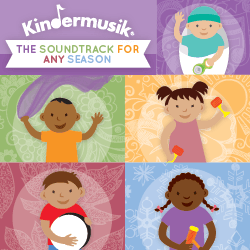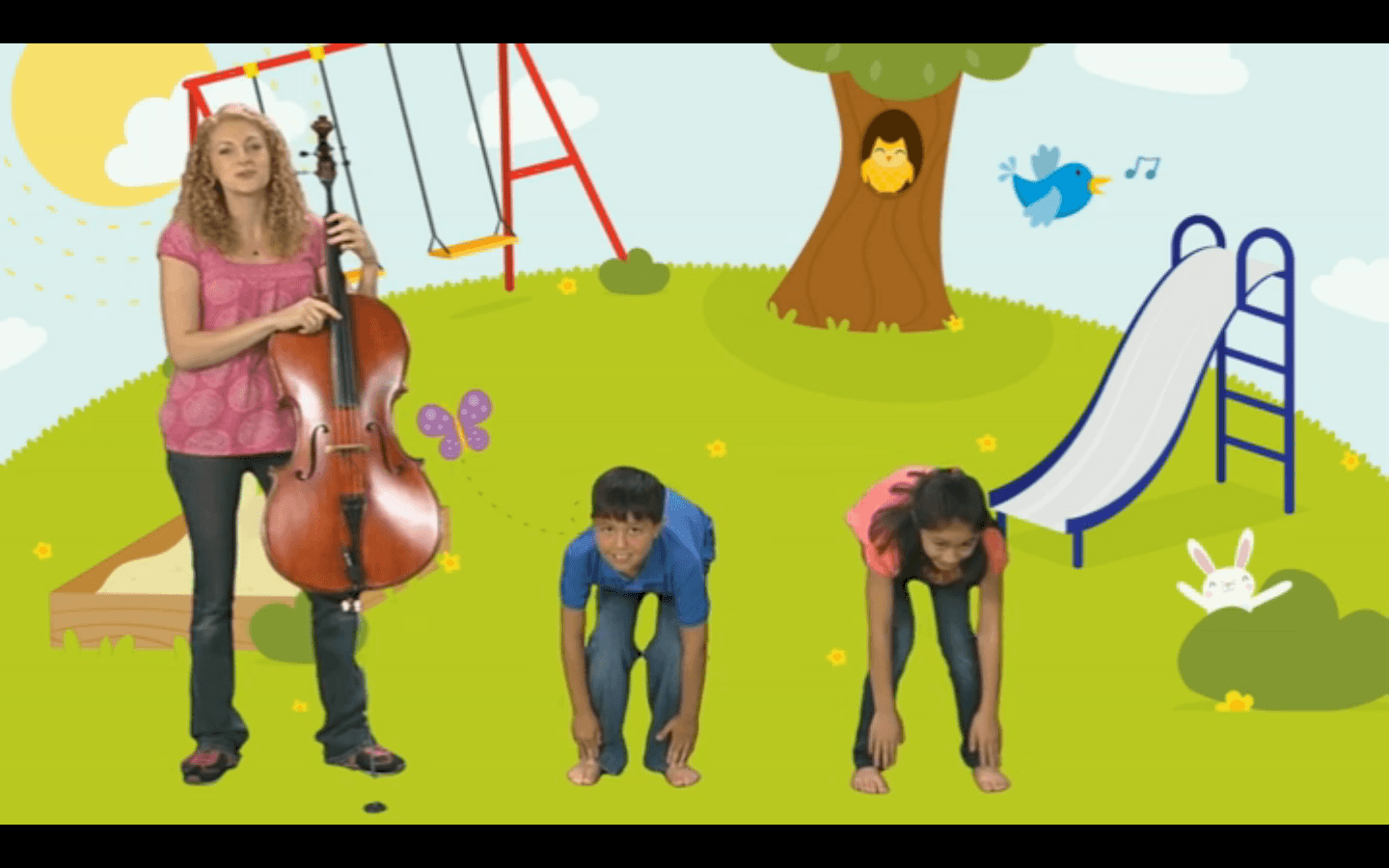 Imaginative. Adventurous. Exuberant. Brash. Social. Silly. Musical. Preschoolers are the living definition of all of these words… and more! It’s what we love most about this delightful age. Their energy, curiosity, and delight in living life out loud are fostered by an increasing sense of independence and self-confidence. They are developing their individuality and want to be noticed and acknowledged. Preschoolers are social butterflies, and their social skills are blossoming, as are their growing abilities to cooperate, problem-solve, share, and make friends.
Imaginative. Adventurous. Exuberant. Brash. Social. Silly. Musical. Preschoolers are the living definition of all of these words… and more! It’s what we love most about this delightful age. Their energy, curiosity, and delight in living life out loud are fostered by an increasing sense of independence and self-confidence. They are developing their individuality and want to be noticed and acknowledged. Preschoolers are social butterflies, and their social skills are blossoming, as are their growing abilities to cooperate, problem-solve, share, and make friends.
Play is the preschooler’s work. In fact, there is no better way for these eager and curious thinkers to learn, grow, and develop than through play – play alone and play with others – including mom and dad! The expansiveness of the preschooler’s personality overflows into his vocabulary and self-expression. Preschoolers love playing with words, and they like to talk. A lot. And if you’ve heard it once, you’ve answered it a thousand times – this is the age of “why.” It’s how they learn and interact. Their movements become more expansive too, and the need to move is because of their boundless amounts of energy. (And you thought you were tired chasing them as toddlers!)
But perhaps the best way to sum up the preschooler season of childhood is with the word “readiness.” Preschoolers are on the verge of so much potential. They are ready – ready to try new things, take turns, be challenged, and work cooperatively with others. Simply put, they’re ready to get ready!
With music as the vehicle, Kindermusik helps your child be ready. Ready to face life head on, ready for school, ready for new adventures, and ready for that next step in music. Movement, imagination, play, creativity, exploration, interacting, and ensemble all set the stage for making sure your child has every advantage in a very critical season of childhood – that wonderful transition from baby to big kid that we call “preschooler”!
Here are four of the most powerful benefits of music for preschoolers:
1. Music encourages children to move.
Movement and music are as closely connected as movement and learning. At a time when there are increasing concerns about how long these young children are being required to sit still, being able to move to music is a gift. Here’s how a Washington Post reporter summed it up in her recent article, “In order for children to learn, they need to be able to pay attention. In order to pay attention, we need to let them move.”
2. Music fosters a sense of community and belonging.
At the core of every human being is a desire to belong. When that need to belong is fulfilled, it contributes to healthy emotional development and well-being. Self-confidence grows as a child learns to function within a group. And there’s no happier group experience than making music together!
3. Music provides an outlet for self-expression.
With gifts, experiences, thoughts, and ideas that simply overflow, a music class offers a secure environment for each individual child to explore, learn, and contribute. The value is in the experience itself with play, discovery, singing, story telling, and new challenges as the tools that open the door for self-expression, meaningful learning, and a lifelong love for music.
4. Music readiness and academic readiness go hand-in-hand.
The same skills and experiences necessary for a child to be ready for music lessons when they are older are the same skills and experiences that enhance and even accelerate academic readiness and success. Listening, identifying patterns, problem-solving, creative thinking, and self-confidence are skills that music develops – skills that are also a measurable contributors to academic achievement.
For parents…
 You want to give your child every advantage. And yet, you don’t want to let him or her grow up too fast. Childhood is meant to be savored and enjoyed, a time that you share experiences and create memories that stay in the heart for years to come.
You want to give your child every advantage. And yet, you don’t want to let him or her grow up too fast. Childhood is meant to be savored and enjoyed, a time that you share experiences and create memories that stay in the heart for years to come.
Kindermusik helps you linger in those precious moments of childhood and make the most of the preschool season with your child. With a class structure that includes time apart and time together, Kindermusik is perfect for the preschool season of childhood. You’ll love watching your child blossom, and you’ll love the way your time together in class and your music-making at home brings you together in new and special ways.
And the icing on the cake is knowing that you’re giving your child a gift that truly lasts a lifetime – the gift of a musical foundation and love for music that uniquely prepares your child like no other single activity can.
ELL students learn through movement
Children are the real movers and shakers of this world. Watch a toddler practice walking, supervise group activities for kids, or even catch your young children in your arms as they run to welcome you home, and you will see there is a whole lot of moving happening! From birth, children learn to move and move to learn.
 In the world of ESL curriculum development, we understand that English language learning is best acquired when closely linked to a gross- or fine-motor skill activity. Learning through actions or through Total Physical Response (TPR) reinforces new and old language. Research shows that TPR positively impacts memory and recall in language learning. Plus, physical activities for kids makes the learning all the more fun—whether learning how to roll a ball or how to say “ball” in English while learning how to dribble it!
In the world of ESL curriculum development, we understand that English language learning is best acquired when closely linked to a gross- or fine-motor skill activity. Learning through actions or through Total Physical Response (TPR) reinforces new and old language. Research shows that TPR positively impacts memory and recall in language learning. Plus, physical activities for kids makes the learning all the more fun—whether learning how to roll a ball or how to say “ball” in English while learning how to dribble it!
Music and movement and ELL students
 In our ESL curriculum, ABC English & Me, we use English songs for kids, Total Physical Response, puppets, and story time to teach ELL students. English songs for kids that include miming of the songs provide children with the opportunity to sing and do—or Total Physical Response. For example, moving and hearing the vocabulary in “Head, Shoulders, Knees, and Toes” encourages ELL students to then use the new vocabulary as they move. Familiar English nursery rhymes and finger plays, pair English Language Learning with a fine motor activity.
In our ESL curriculum, ABC English & Me, we use English songs for kids, Total Physical Response, puppets, and story time to teach ELL students. English songs for kids that include miming of the songs provide children with the opportunity to sing and do—or Total Physical Response. For example, moving and hearing the vocabulary in “Head, Shoulders, Knees, and Toes” encourages ELL students to then use the new vocabulary as they move. Familiar English nursery rhymes and finger plays, pair English Language Learning with a fine motor activity.
ABC English & Me, our ELL/ESL curriculum for ages 2 to 6, aligns with international standards, including the Common European Framework of References for Languages (CEFR). Plus, we incorporate the latest research on how music and Total Physical Response boosts language learning and increases phonological awareness.
Learn more about bringing ABC English & Me to your school!


 Experience the benefits of Kindermusik for yourself.
Experience the benefits of Kindermusik for yourself. 